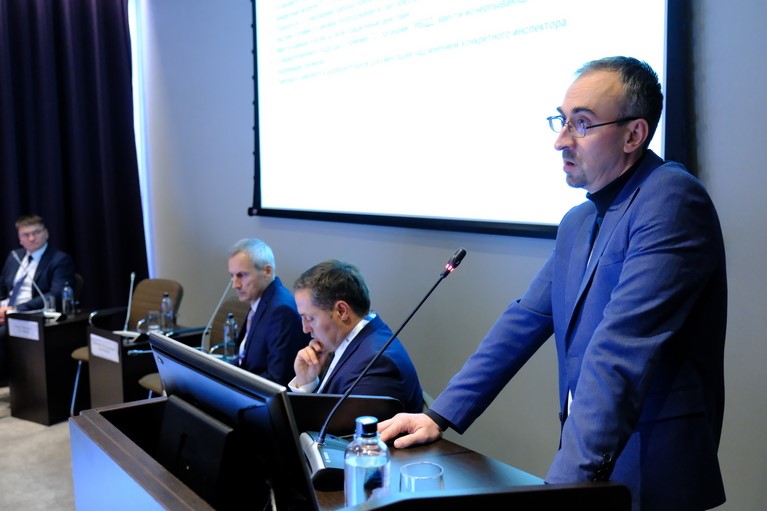SPIGF 2024: Bureaucracy Is Hampering Development of Gas Engine Transport

At the conference «Technical regulation, reequipment and operation of the commercial transport on gaseous fuels: problems and solutions» within the framework of the SPIGF 2024 manufacturers, suppliers and users of automotive gas equipment discussed difficulties arising at the development of gas engine transport.
The participants of the conference acknowledged that conversion of the commercial transport to gas fuel was not progressing quickly enough. A serious obstacle here is the excessive complexity of registration procedures.
According to estimation of Pavel Prokhorov, the Chairman of the Management Board of the Union of Gas Engine Industry Enterprises, annually in Russia 300–400 thousand cars are converted to gas, but 90–95 % of them are propane-powered passenger cars. And the goal is to increase number of other types of transport consuming gas fuel. The easiest way to provide growth is to increase production of gas-powered vehicles, but if such buses are produced, then the production of trucks or passenger cars with gas supply is not enough.
The state is constantly increasing support measures, – said Alexander Tavdidishvili, CEO of Alternative Fuel Transport company, – but conversion of cars to gas lags behind the pace of infrastructure development, as a result, many gas stations remain unprofitable: quantity of gas stations is growing and the average volume of gas sales at them is decreasing. Although cost per kilometer of a natural gas car is the lowest comparing to other types of fuels, many drivers are still afraid of gas as fuel.
There is a great potential of growth in conversion to gas of freight trucks, Dmitry Karasev, Commercial Director of Baltic Leasing, thinks, and this would give significant savings for transport companies, but namely in this segment there are almost no conversion centres, although the demand is high. Besides that, drivers of gas freight trucks need gas stations at highways and specialized services within reach. One more difficulty is the growing market of Chinese trucks, Karasev noted. The possibilities of installing of Russian gas equipment to different brands of Chinese cars have not yet been fully explored.
Another big problem is the procedure for registration of gas equipment on cars. In 2023–2024, Russian Post carried out a pilot project to convert about 160 cars to gas, said Igor Yurchenko, Head of Projects of Office of Transport Strategy Projects Implementation of the Department of Transport Support of JSC Russian Post, but came across a large amount of bureaucracy. According to him, to legalize and register a car converted to gas it is necessary to complete 11 actions, moreover for each car separately and it takes several weeks. Technical regulations are drawn up in such a way that they allow different interpretations, as a result of which inspectors of State Road Safety Inspectorate may at their own discretion accept or refuse documents. Conversion to gas of several thousand cars, according to estimations of Igor Yurchenko, may take several years in such conditions.
«Why not certify a set of gas equipment for installation to a specific model range?» – the speaker asked.
In different regions the requirements of authorities to conversion of cars may be different, the participants of the conference remarked. According to them, it is necessary to elaborate a unified order of interaction of customers, authorities and suppliers of equipment in order to simplify the procedure. Additionally, measures on popularization of gas fuel are needed so that citizens could better appreciate its advantages.